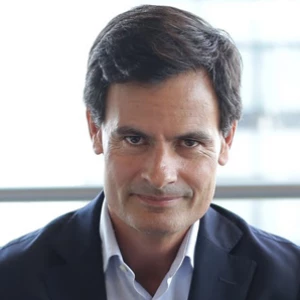The overall growth of global private wealth picked up momentum in 2016, allowing for a good deal of regional variation. All regions experienced positive growth, with North America, Western Europe, Latin America, and the Middle East and Africa posting stronger expansion than in the previous year, and Asia-Pacific, Eastern Europe, and Japan growing at slower rates. Asia-Pacific was nonetheless the most robust region, achieving an increase that was just shy of double digits. We expect sizable growth to continue. This report, The Boston Consulting Group’s 17th annual analysis of the global wealth management industry, includes two topics that we reexamine every year—the global market-sizing review and the wealth manager benchmarking study—as well as a special chapter about the impact of digital technology on the industry.
The market-sizing chapter outlines the evolution of private wealth from both global and regional perspectives, including viewpoints on different client segments and offshore centers, and takes a fresh look at private-banking revenue pools. The benchmarking analysis stems from a survey of more than 125 wealth managers and involves more than 1,000 performance indicators related to growth, financial performance, operating models, sales excellence, employee efficiency, client segments, products, and trends in different markets.
In our benchmarking, we focused on issues surrounding the decline of what for many years was a highly profitable wealth management business, lightly regulated and with low capital requirements. To be sure, since the financial crisis of 2007–2008, institutions have been dealing with more sophisticated and circumspect investors who demand reduced fees and commissions in order to increase returns in a low-yield world. Wealth managers have tried to reduce costs to ease the squeeze on profit margins, but a more forward-looking approach will be required in the future. On the positive side, we have observed an inflection point over the past year, with more wealth managers beginning to increase strategic investments to transform their businesses.
Our benchmarking chapter also takes a detailed look at the ever-evolving role of the relationship manager and how that critical position is shifting—indeed, how it must shift—in the search for competitive advantage. Overall, it is our view that wealth management, despite considerable challenges, will remain a very attractive business as long as institutions take steps to adapt to the changing environment. Determining investment priorities and following through on them will be critical to success.
In our discussion of digital technology, we highlight how digital has become a key accelerator for future change in wealth management. The problem is that most players, so far, have pursued digital innovation primarily as a feature selection exercise, centering on what their existing technology can provide along with what competitors (and, to some extent, fintechs) may intend to offer. Many of their digital launches have been realized opportunistically, stemming from one-off task forces, thus producing basic, largely disconnected, or insufficiently embedded digital capabilities. In order to make a step change in digital advancement and leapfrog the competition—to truly transform the client experience—wealth managers need to introduce a new approach to client journeys, upgrading to a next-generation, 2.0 version.
In preparing this report, we used traditional segment nomenclature that will be familiar to most wealth management institutions, dividing the client base into the following categories: affluent, lower high net worth (HNW), upper HNW, and ultra-high net worth (UHNW). These wealth bands tend to vary from player to player. We based segments on the following measures of private wealth:
- Affluent: between $250,000 and $1 million
- Lower HNW: between $1 million and $20 million
- Upper HNW: between $20 million and $100 million
- UHNW: Over $100 million
Moreover, in order to clearly gauge the evolution of global private wealth, we have updated and fine-tuned our market-sizing methodology, incorporating newly available data for countries where information previously had been difficult to obtain. The report also introduces our revenue pools model, which can be used to estimate banking market sizes and potential total banking revenue. Our revenue pools methodology calculates market-specific results for the largest 18 markets (covering 80% of total global wealth). Results for the remaining markets are based on regional averages. All growth rates are nominal, with fixed exchange rates.
As always with our annual global wealth reports, our goal is to present a clear and complete portrait of the business, as well as to offer thought-provoking analyses of issues that will affect all types of players as they pursue their growth and profitability ambitions in the years to come. We take a holistic view of the entire wealth management ecosystem, emphasizing how the market, institutions, and clients interact and identifying where the best opportunities for wealth managers can be found.














